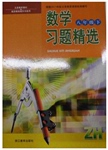
书面表达
地球是我们的家园,我们作为地球的主人, 就应该好好保护地球。 现在正在倡导“低碳”生活, 只要我们不污染环境,不浪费能源,就能够让我们周围变得更洁净, 生活变得更美好。 作为中学生, 我们应该怎样做呢?谈谈你的想法。要求:短文中不得出现真实的校名和人名;80词左右。
提示词: lowcarbon lifestyle 低碳生活方式
How to make our earth turn better
How to make our earth turn better
The earth I sour home. We should protect our earth as the owner. But how to live a lowcarbon lifestyle?
I think as middle school students, we should save the resources around us, such as the water, the electricity and so on . Remember to turn off the lights when you leave the classroom. Also, I think saving paper is necessary. Thus, fewer trees will be cut down. If we can save more food, the peasants will plant more trees on their farm. Don’t throw litter everywhere, it will pollute our environment.
If everyone can make a contribution to our earth, our life will be better and better.


 习题精选系列答案
习题精选系列答案科目:初中英语 来源: 题型:
The APEC 2005 _____ from Nov.12th to 19th in Busan, South Korea last year.
A. happened B. takes place C. was held D. was taken place
查看答案和解析>>
科目:初中英语 来源: 题型:
阅读理解
My name is Ling Feng. I am a Chinese boy. At school I have a good friend, Mike. He is an English boy. He is twelve, but I am thirteen. We are in No. 5 Middle School. We are in the same grade, but we are in different (不同的) classes. Mike's sister is not a student. She is four. His mother can look after her at home.
根据短文内容,判断下列句子的正(T)误(F):
1. Mike is Ling Feng's friend at school.
2. Ling Feng and Mike have the same age.
3. The two boys are in the same schools.
4. Mike's sister is a student, too.
5. From this passage (从这篇短文中) , we can know the mother's name.
查看答案和解析>>
科目:初中英语 来源: 题型:
---Is there ________ on today’s news paper?
--- It is reported that millions of people can’t go back home in the south because of the frozen weather.
A. something special B. special something
C. special anything D. anything special
查看答案和解析>>
科目:初中英语 来源: 题型:
When the earthquake hit Japan on March 11, workers in a supermarket in Japan didn’t run away when they felt the shaking. Instead, they held on to the shelves and tried to stop the goods (货物)from falling down.
Reporters from NHK, the country’s largest TV station, stayed calm in front of cameras during the earthquake, even though some were facing real danger.
The earthquake was the most powerful one to hit Japan in the country’s history. But Japan’s reaction( 反应 ) to the accident has shown that it is the most earthquake-prepared country in the world. The calm the Japanese showed during and after the quake has impressed the world.
This is because Japan has “an earthquake culture”. Japanese people are taught how to prepare for and react to earthquakes from a young age.
Schools in Japan organize earthquake practices every month. They make students become familiar with being in an earthquake.
Japan also has a good earthquake warning system(警报系统 ). Warning were broadcast on television, radio and mobile phones nine seconds after experts( 专家 ) first knew about the quake on March 11.
The warning system is unable to predict earthquakes. But it can usually alert people about 15 seconds before they feel the effects. Even 15 or 20 seconds can be enough time to save people’s lives.
1.How did Japanese people react when the big earthquake hit Japan on March 11?
A. The felt angry B. They were scared C. They stayed calm D. They were frustrated.
2.Which of the following is TRUE according to the passage?
A. Japan’s reaction to the earthquake impressed the world.
B. Japanese schools organize earthquake practice every day.
C. Japan has a warning system that can predict earthquakes
D. Japanese people learn about earthquake safety only from universities.
3.What does the underlined word “alert” mean in Chinese?
A. 改善 B. 提高C.提醒 D.改变
4. What does the story mainly tell us about?
A. Japan’s earthquake culture.
B. The bad results caused by the earthquake
C. Japanese people were scared after the earthquake.
D. Japanese people were homeless after the earthquake.
查看答案和解析>>
科目:初中英语 来源: 题型:
_____ you _____ to go to the park when they were children?
A. Did, use B. Did, used C. Do, used
查看答案和解析>>
科目:初中英语 来源: 题型:
—— I don’t know ______ with this problem. It’s too hard.
——You can ask Mr Wang for help.
A. which to deal B. how to deal C. what to deal
查看答案和解析>>
科目:初中英语 来源: 题型:
—Where did you go that day?
—I went to a city ______ Jinan. It is very beautiful.
A. called B. calling C. to call D. call
查看答案和解析>>
科目:初中英语 来源: 题型:
阅读理解,阅读短文,然后判断文后的句子是否与短文内容相符,符合的打“√”,不符合的打“×”。
The telephone rang while Mrs Hunt was cooking lunch. Her son Bruce went to answer it. His aunt said she was coming to see them with her daughter that afternoon. Mrs Hunt was happy because she hadn’t seen her sister for several months. She knew the girl liked bananas very much, but she was busy in the kitchen and couldn’t go to buy some for her. She gave some money to Bruce and said, “Go and buy two kilos of bananas in the shop.”
Bruce liked bananas, too. He went out happily. Thirty minutes later he came back with a bag in his hand. Mrs Hunt weighed(称) the bananas and found they were half a kilo short. She took the bag to the shopkeeper and said, “I sent my little son for two kilos of bananas, but you gave him only one and a half kilos!”
“Have you weighed your little son yet, madam?” asked the shopkeeper, “My scales(秤) are all right!”
1. The story happened at night.
2. Mrs Hunt’s sister and her daughter were coming to see them.
3. Mrs Hunt sent her son for the bananas.
4. Bruce didn’t like bananas at all.
5. The shopkeeper gave Bruce only 1.5 kilos of bananas.
查看答案和解析>>
湖北省互联网违法和不良信息举报平台 | 网上有害信息举报专区 | 电信诈骗举报专区 | 涉历史虚无主义有害信息举报专区 | 涉企侵权举报专区
违法和不良信息举报电话:027-86699610 举报邮箱:58377363@163.com